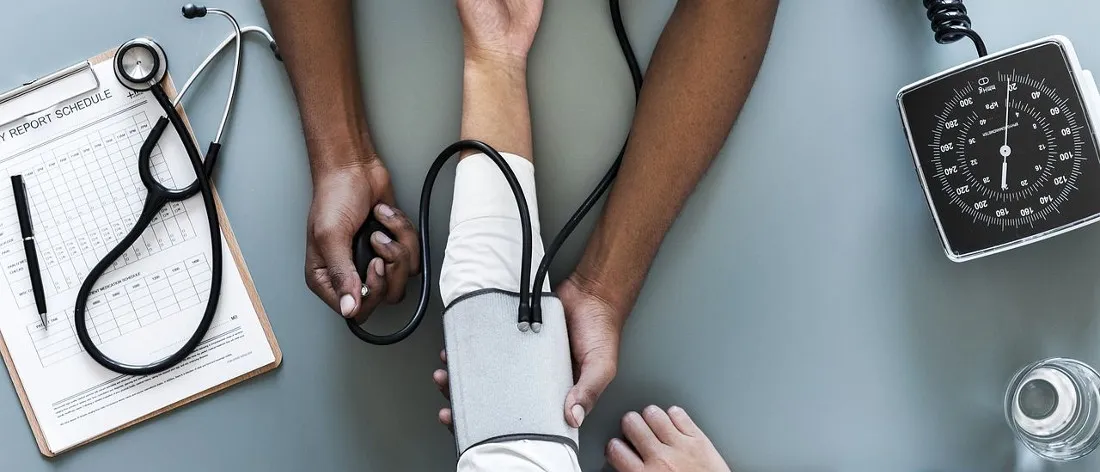Obesity not only affects your appearance; it can also impact your heart, arteries, and overall health. Conditions such as high blood pressure (hypertension) and high cholesterol (hyperlipidemia) are closely linked to excess weight. For many individuals, losing weight through lifestyle changes alone can be challenging. This is where robotic weight loss surgery, also known as bariatric surgery, can be highly beneficial.
According to the Bariatric and Metabolic Institute guide, at least 70% of patients with high blood pressure can stop all medications and achieve normal blood pressure levels, usually within two to three months after surgery.
In addition to helping people lose weight, bariatric procedures like gastric sleeve and gastric bypass have been proven to significantly lower blood pressure, improve cholesterol levels, and reduce the risk of heart disease. In this article, we will explain how weight loss surgery helps reduce high blood pressure and cholesterol, what changes occur in your body after surgery, and what results you can expect.
Understanding The Connection Between Obesity, Blood Pressure and Cholesterol
Carrying excess weight puts constant strain on your heart and blood vessels. Here’s how:
- Increased blood volume and resistance: Extra body mass means the heart must pump faster and harder to circulate blood, leading to higher blood pressure.
- Hormonal imbalance: Obesity affects hormones like insulin, leptin, and angiotensin, which influence blood vessel constriction and fat metabolism.
- Inflammation: Fat cells release inflammatory chemicals that contribute to plaque buildup in arteries and elevate LDL (bad) cholesterol.
Over time, this combination can lead to hypertension, high cholesterol, atherosclerosis and an increased risk of heart attack or stroke.
How Weight Loss Surgery Works?
Weight loss surgery isn’t just about reducing stomach size—it changes how your body processes food and regulates metabolism.
Common procedures include:
Here are some of the common types of bariatric surgeries which include:
- Gastric Bypass (Roux-en-Y): Creates a small stomach pouch and reroutes part of the small intestine, reducing calorie absorption.
- Sleeve Gastrectomy: Removes about 80% of the stomach, limiting food intake and lowering hunger hormones.
- Adjustable Gastric Banding: Uses a band around the upper stomach to control portion size.
These procedures trigger hormonal, metabolic, and circulatory changes that go far beyond weight loss alone.
1. Reduction in Blood Pressure After Surgery
Immediate Impact
Within weeks of surgery—often before significant weight loss—many patients see lower blood pressure readings. This is due to improved insulin sensitivity, reduced inflammation, and hormonal balance.
Long-Term Benefits
Over the following months, as body weight decreases, the heart no longer has to pump as forcefully. Arteries become more flexible, and fluid retention decreases.
According to the American Society for Metabolic and Bariatric Surgery (ASMBS), over 70% of patients with hypertension experience improvement or complete resolution of their high blood pressure after surgery.
2. Improvement in Cholesterol and Lipid Levels
Decreased LDL (“Bad”) Cholesterol
Bariatric surgery reduces fat storage and improves fat metabolism. As a result, LDL cholesterol and triglycerides drop significantly.
Increased HDL (“Good”) Cholesterol
At the same time, HDL—the cholesterol that helps clear arteries—tends to rise, improving cardiovascular protection.
A long-term study published in The New England Journal of Medicine found that patients maintained lower cholesterol and triglyceride levels for up to 10 years after surgery, compared to those who managed weight through lifestyle alone.

3. Hormonal and Metabolic Changes That Protect the Heart
Weight-loss surgery alters the release of gut hormones, such as GLP-1, PYY, and ghrelin, which regulate hunger and metabolism. These hormonal changes:
- Improve insulin sensitivity to reduce the risk of diabetes and associated vascular problems.
- Decrease inflammation that damages blood vessels.
- Enhance fat oxidation to reduce the buildup of harmful lipids in the bloodstream.
Together, these improvements lighten the load on the cardiovascular system, helping normalize both blood pressure and cholesterol naturally.
4. Reduced Need for Medication
For many patients, the benefits go beyond numbers. Within 6–12 months after surgery, most people experience:
- Lower blood pressure without the need for multiple medications.
- Normalised cholesterol levels that require little to no statin therapy.
- Reduced dependence on insulin or diabetes medication if previously diagnosed with type 2 diabetes.
In fact, some studies show that over half of bariatric patients discontinue hypertension or cholesterol medications within one year of surgery, with doctor supervision, of course.
5. Long-Term Heart Health Benefits
The improvements in blood pressure and cholesterol translate into real-world outcomes. People who undergo bariatric surgery are:
- 58% less likely to experience a heart attack or stroke
- 40% less likely to die from heart disease compared to those who don’t have surgery
- More likely to maintain healthy blood pressure and cholesterol levels for years
By reducing strain on the heart, improving blood flow, and stabilizing lipid levels, bariatric surgery gives your cardiovascular system a second chance.
Is Weight Loss Surgery Right for You?
Weight loss surgery may be recommended if:
- Your BMI is 35 or higher, and you have related health conditions like hypertension or high cholesterol.
- You’ve tried diet and exercise without lasting success.
- You’re ready to make long-term lifestyle changes post-surgery.
A consultation with bariatric surgeon like Dr. Will Johnson can help determine which procedure best fits your needs and goals. If you’re struggling with obesity, high blood pressure, or high cholesterol, weight loss surgery could be the life-changing solution you’ve been looking for.
At Bodiatrics, our experienced surgical team helps patients reclaim their health, confidence, and energy—safely and effectively. Schedule your consultation today and take the first step toward a healthier heart and a longer life.




